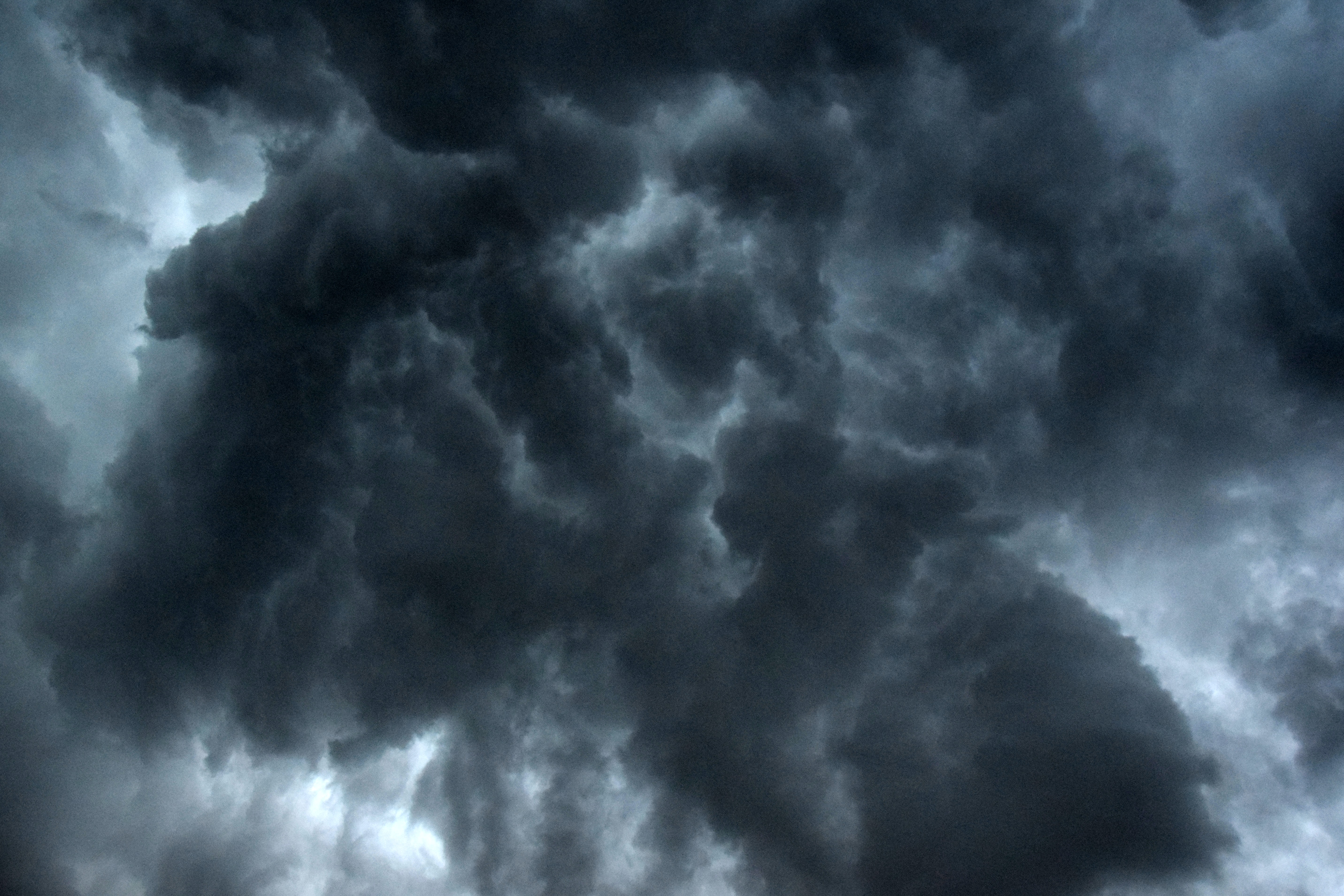
Fear and Rain by Gabby Buchholz
There once was a city, ancient and perfect, filled with citizens who loved their home, their gods, and their happy lives. These worshipped idols controlled the land they tended, the crops they lived off of, and the animals which aided as companions. The gods’ almighty powers governed the lives of the townspeople, and the mortals were happy for it. The people lived their perfect lives for many, many years, until one day a storm appeared. It hid on the edges of the city, outside the gates. The storm was brewing, and at any moment it was ready to strike and ruin the tranquility of the metropolis.
The people were afraid of this storm destroying all that they loved, so they asked their gods to protect them. They cried out, “Please protect us and keep the evil storm at bay! Do not let it touch our perfect city!”
Their gods did as the people begged. They kept the storm at bay for another day.
But the storm did not like being held back. The very next day it returned, and again it pushed at the entryway of the city. The weather was a force beyond the gods control, and did not enjoy being tethered and restrained. Nature is meant to move freely; to be controlled is a crime against the forces of the world. The people became even more afraid, and, once again, they cried out to their gods for help and protection.Their gods, being benevolent beings, did as they were asked and pushed the storm back even further.
This game went on for a long time; enough for the older generations to believe it a hoax they would never face in their lifetimes. Nor in their childrens’. They saw it as an empty threat. Every day, the storm would wake angrier than before and fight at the city’s gates to enter.
Though no one knew what the storm planned to do, they were all still afraid of it and used their gods to fight it. The gods, with their almighty power, were able to utilize their own strengths to combat the storm. It hurt them to do so, going against nature. The natural world was their birth place, and the world in which they governed. But these benevolent, immortal beings loved their people, and would do anything to protect them. Even go against their own kind.
But, over time, the gods became more and more tired of being used as shields by their people. They loved to help their people, but grew frustrated when they realized the mortals were not also putting in work themselves. They would protect their people against great storms, so long as they boarded their own windows and sheltered in their homes. If a great fire broke out, the god of their water sources would aid alongside the citizens pouring buckets upon buckets on the source of great destruction. However, the people have become lazy, and dependent on their gods, taking advantage of their fierce power. And so, one fateful day, when the people rose up and saw the storm rushing at the gates, they asked their gods, “Will you please save us yet again from the evil storm that threatens our city and our lives?”
And the gods simply replied by letting the storm enter.
The anger that had built in the storm was finally released. Rage, white-hot and ready to devour merged with the wind and rain, strong enough to topple building upon building. The thunder shook the ground it quaked over, a distant roar heard in each one. Lighting struck quick and fierce, igniting the poor and unlucky that found themselves in its path.
The people rushed to hide, to protect themselves and those they loved, but it was hopeless against the storm that was too quick and powerful. It crushed homes and markets, toppled statues, and used rain and wind—stronger than the city had ever known before—to finish its destruction off.
Once it was satisfied with the ruination it had caused, the storm rushed off in pursuit of another town. The citizens that remained crawled out from the rubble and asked their gods why they had let such a terrible and destructive thing occur.
Their gods, in unison, replied, “If only you had prepared for the storm on that first day, your city might not have been destroyed like this. By pushing it off again and again, you led to your ultimate destruction. We grew tired of being used simply as protection and thought it time you fought for yourselves.”
They left the survivors of the storm to clean up their once perfect city and anticipate the next storm—whenever it may come—and find a way to begin again.